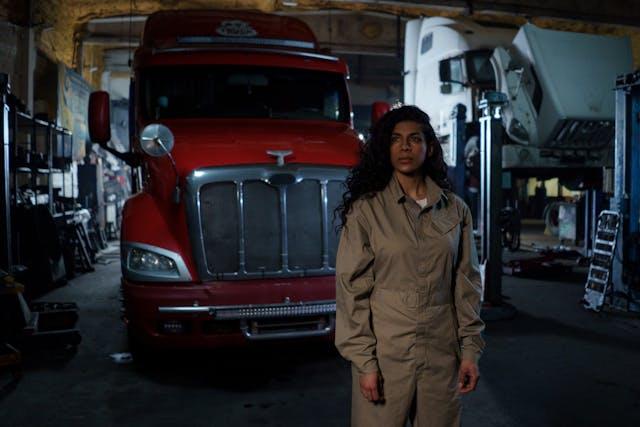Taking legal action against large-scale defendants—such as corporations, commercial vehicle operators, or government entities—requires strategic preparation, robust evidence, and a deep understanding of both the legal landscape and the challenges posed by well-resourced opponents. Whether you’re pursuing compensation for a catastrophic injury or addressing a systemic safety failure, constructing a solid case is essential for achieving a fair outcome.
Understanding the Nature of Large-Scale Defendants
Who Are Large-Scale Defendants?
Large-scale defendants include major corporations, manufacturers, logistics companies, and government agencies. These entities often have extensive legal resources and teams of experienced attorneys dedicated to minimizing liability and financial exposure.
Examples include:
- Trucking companies involved in multi-vehicle accidents
- Pharmaceutical manufacturers facing product liability claims
- Corporations accused of consumer fraud or labor violations
- Municipalities involved in infrastructure-related injury cases
What makes litigation against these defendants particularly complex is their ability to prolong litigation, utilize procedural tactics, and challenge evidence aggressively.
Why These Cases Are Complex
Several factors contribute to the complexity of these claims:
- Power Imbalance: Plaintiffs often face resource asymmetries when going up against corporate legal teams.
- Access to Information: Critical evidence may be controlled or obscured by the defendant, requiring subpoenas or expert investigations.
- Jurisdictional Challenges: Large defendants may operate across multiple jurisdictions, adding layers of legal complexity.
- Reputation Management: Corporations often fight aggressively to prevent reputational damage, which can influence their litigation strategy.
Gathering Strong Evidence
Importance of Early Investigation
Time is a critical factor in building a strong case. The sooner an investigation begins, the better the chances of preserving evidence, identifying witnesses, and understanding the incident’s context. This is especially important in cases involving commercial vehicles, where electronic logging devices (ELDs), maintenance logs, and GPS data may be key to proving negligence.
Types of Crucial Evidence
When preparing a case against a large-scale defendant, attorneys typically focus on collecting the following:
- Surveillance or dashcam footage
- Witness statements
- Official accident or incident reports
- Employment records and training documentation
- Internal communications and safety audits
In truck accident litigation, for example, federal regulations require carriers to maintain detailed records about driver hours, vehicle maintenance, and cargo handling. These documents can be instrumental in proving fault or non-compliance with industry standards.
Building a Legal Strategy
Working with Experts
Large-scale cases frequently involve technical or scientific evidence. For this reason, expert witnesses are often brought in to:
- Reconstruct accidents
- Analyze mechanical failures
- Evaluate regulatory compliance
- Quantify economic damages
These experts lend credibility to the plaintiff’s arguments and help simplify complex topics for judges and juries.
Filing the Right Type of Claim
Depending on the situation, plaintiffs may choose to pursue:
- Personal injury lawsuits
- Wrongful death claims
- Class action lawsuits
- Mass tort litigation
Each has its own procedural rules and requirements. For instance, class action suits allow multiple plaintiffs with similar claims to join forces, which can be advantageous when confronting a powerful defendant.
The Role of Legal Representation
Why Experienced Counsel Matters
Navigating the legal terrain against a formidable defendant requires more than just good intentions—it demands seasoned advocacy. Law firms that specialize in personal injury or commercial litigation are better equipped to:
- Handle extensive discovery processes
- Counteract defense tactics
- Navigate settlement negotiations
- Take cases to trial if necessary
One example of such a firm is the truck accident lawyer at Vaziri Law, known for representing injury victims against large trucking companies and commercial defendants.
Choosing the Right Attorney
When selecting a law firm, it’s important to consider their:
- Track record with similar cases
- Resources available for litigation
- Reputation within the legal community
- Willingness to go to trial, if needed
Common Defenses by Large Defendants
Shifting Blame
One of the most common strategies large defendants use is to shift the blame to the plaintiff or third parties. In trucking accidents, for example, a company might argue that:
- The injured party was driving recklessly
- The accident was caused by poor road conditions
- A third-party contractor was responsible
Minimizing Damages
Even if fault is established, defendants often try to reduce their financial liability. They may:
- Dispute medical costs
- Challenge the extent of injuries
- Use surveillance to argue that the plaintiff is exaggerating
Effective counter-strategies involve meticulous documentation, credible medical testimony, and expert evaluations of future damages such as lost earning capacity or long-term care needs.
Trends in Litigation Against Trucking Companies
Rising Fatalities and Regulatory Focus
According to the National Safety Council, fatalities involving large trucks have been steadily rising over the past decade. This has triggered increased regulatory scrutiny, especially around driver fatigue, substance testing, and fleet maintenance.
These trends have also led to a higher volume of litigation, particularly when trucking companies are found in violation of federal safety regulations.
The Impact of Technology
New technologies such as dashcams, ELDs, and real-time vehicle tracking have become critical in both prosecuting and defending cases. Plaintiffs can now use this digital trail to:
- Establish patterns of negligence
- Highlight systemic issues such as understaffing or overloading
- Prove time-of-impact and speed data with greater precision
Settlements vs. Trials
Evaluating Settlement Offers
Most large-scale lawsuits never go to trial. Instead, they settle out of court—sometimes after months or years of negotiation. Plaintiffs should be cautious about early settlement offers, which are often far below what the case is worth.
Key factors to consider before accepting a settlement:
- Long-term medical prognosis
- Ongoing loss of income or benefits
- Emotional and psychological trauma
- Liability apportionment
Preparing for Trial
If a case does proceed to trial, the stakes increase dramatically for both sides. Trials offer the opportunity for full compensation but come with the risks of legal fees, delays, and uncertain outcomes. A prepared legal team will have built the case from the outset as if trial were inevitable.
Conclusion
Filing a lawsuit against a large-scale defendant requires diligence, expertise, and strategic foresight. These cases are not won by chance—they’re built through thorough investigation, expert support, and tenacious advocacy. Whether you’re dealing with a trucking accident, a defective product, or institutional negligence, aligning with a law firm that understands the terrain can significantly increase your chances of success.

With a law degree under his belt, Mark Scott understood very early that law communication was a relatively neglected area. He decided to help people by “translating” the language and offering information and advice in a clear, helpful, and actionable manner. For this reason, instead of finding him in court, you will most likely find his name online, where he is very active and thriving as a legal columnist. His part of making the world a better place is to make the law a less convoluted maze. He aims to make it easier for people to understand when and how to seek legal counsel, how to proceed in a significant number of legal matters, and how to find the proper resources so they can stand up for their rights.








